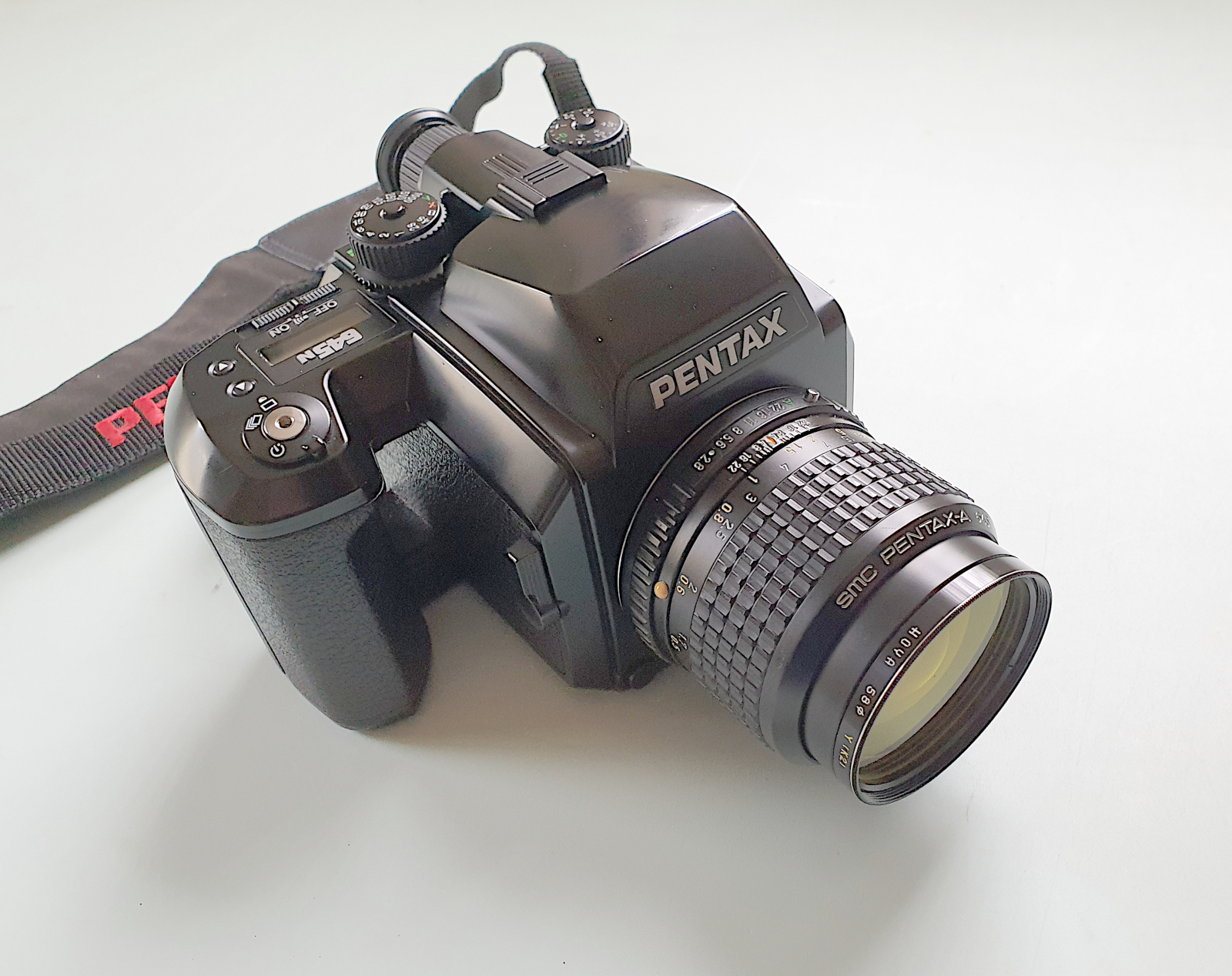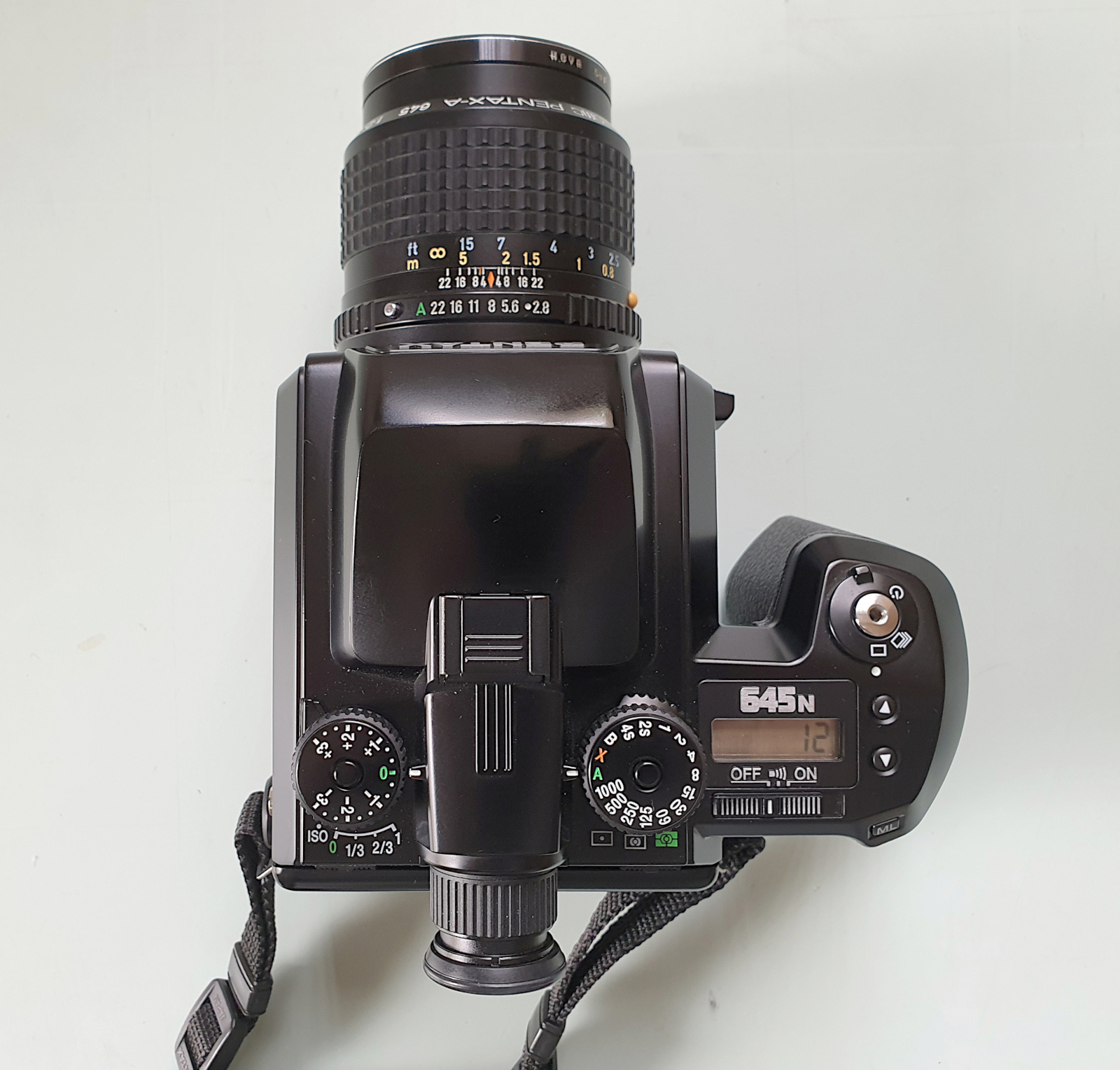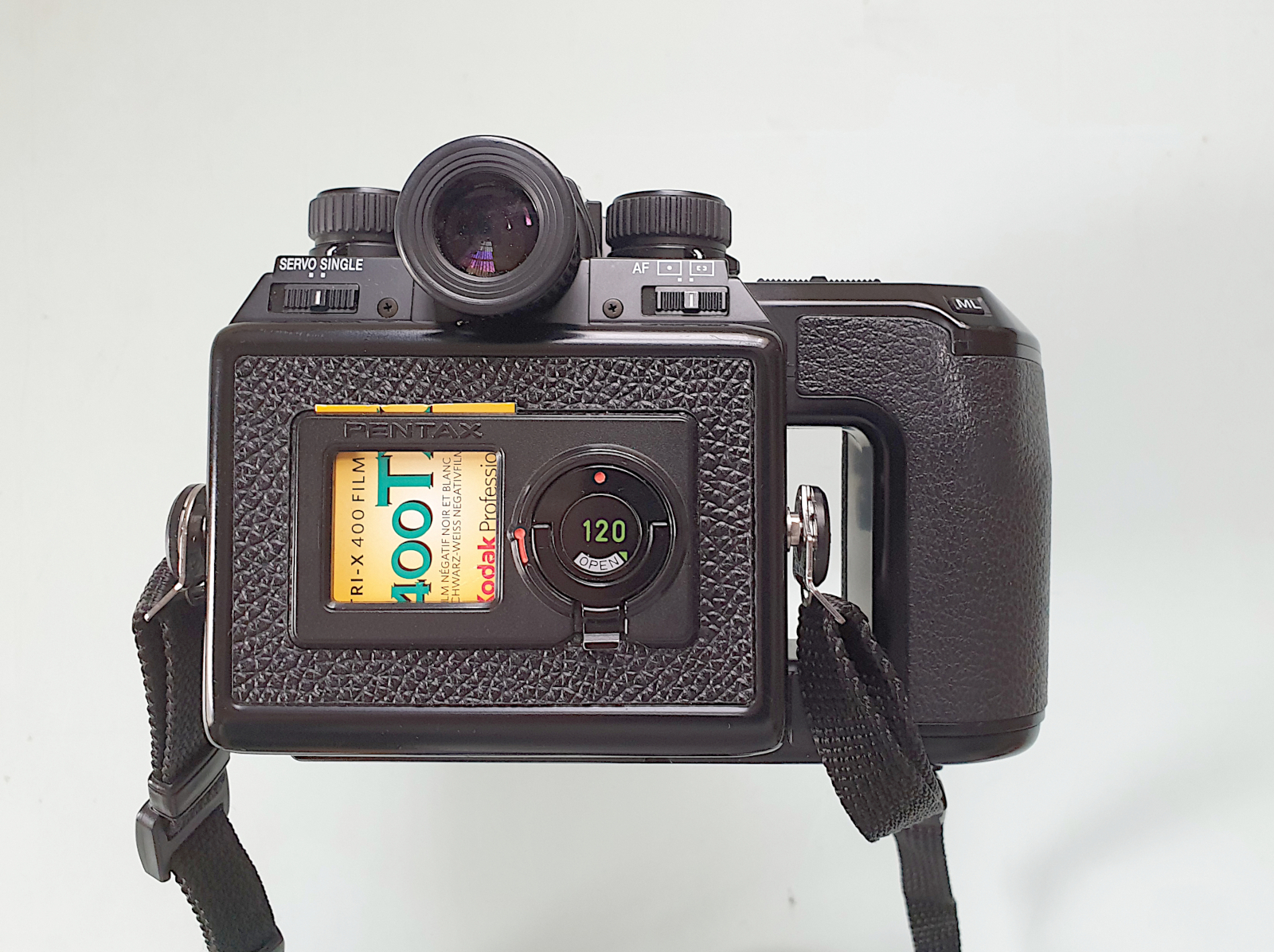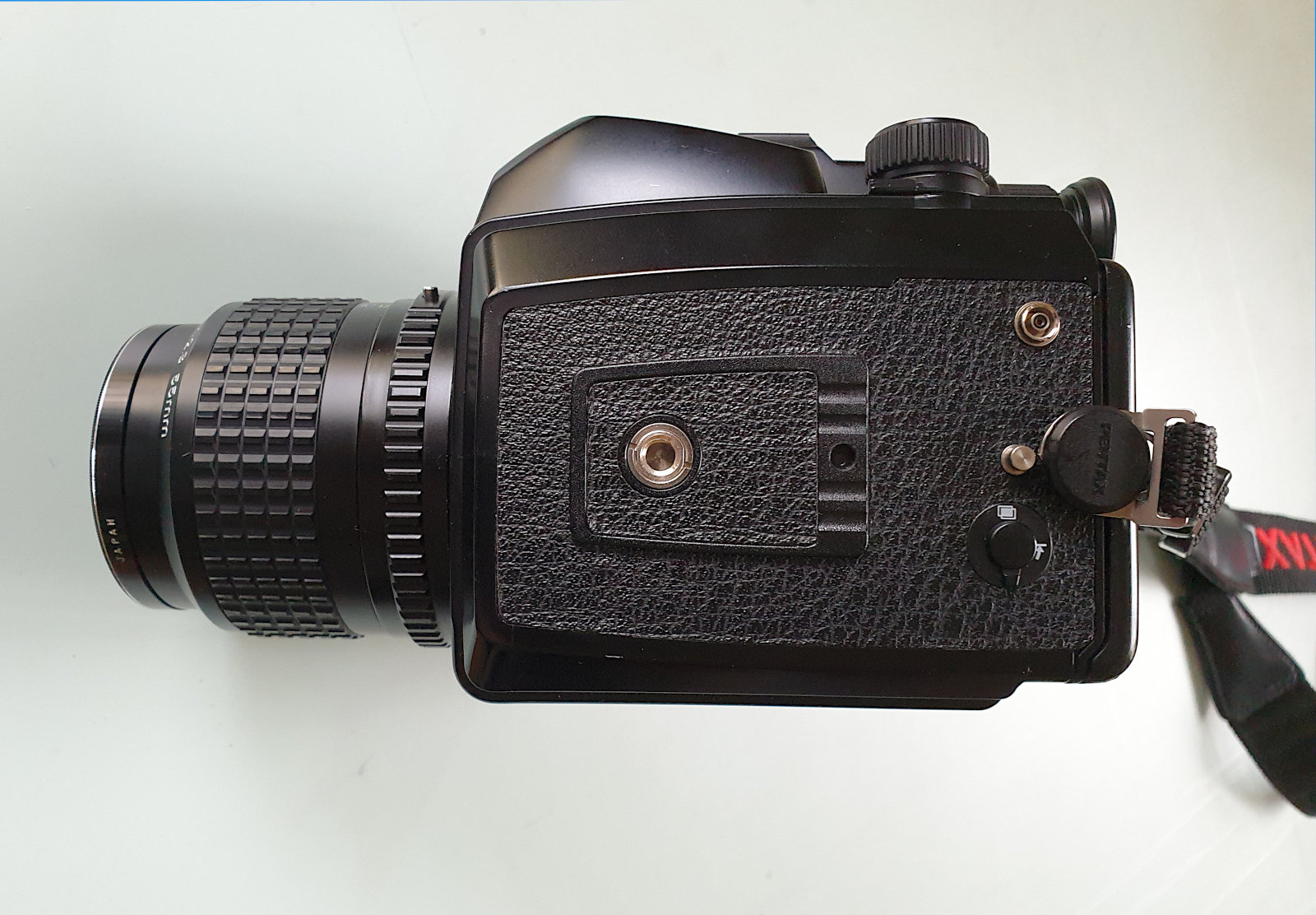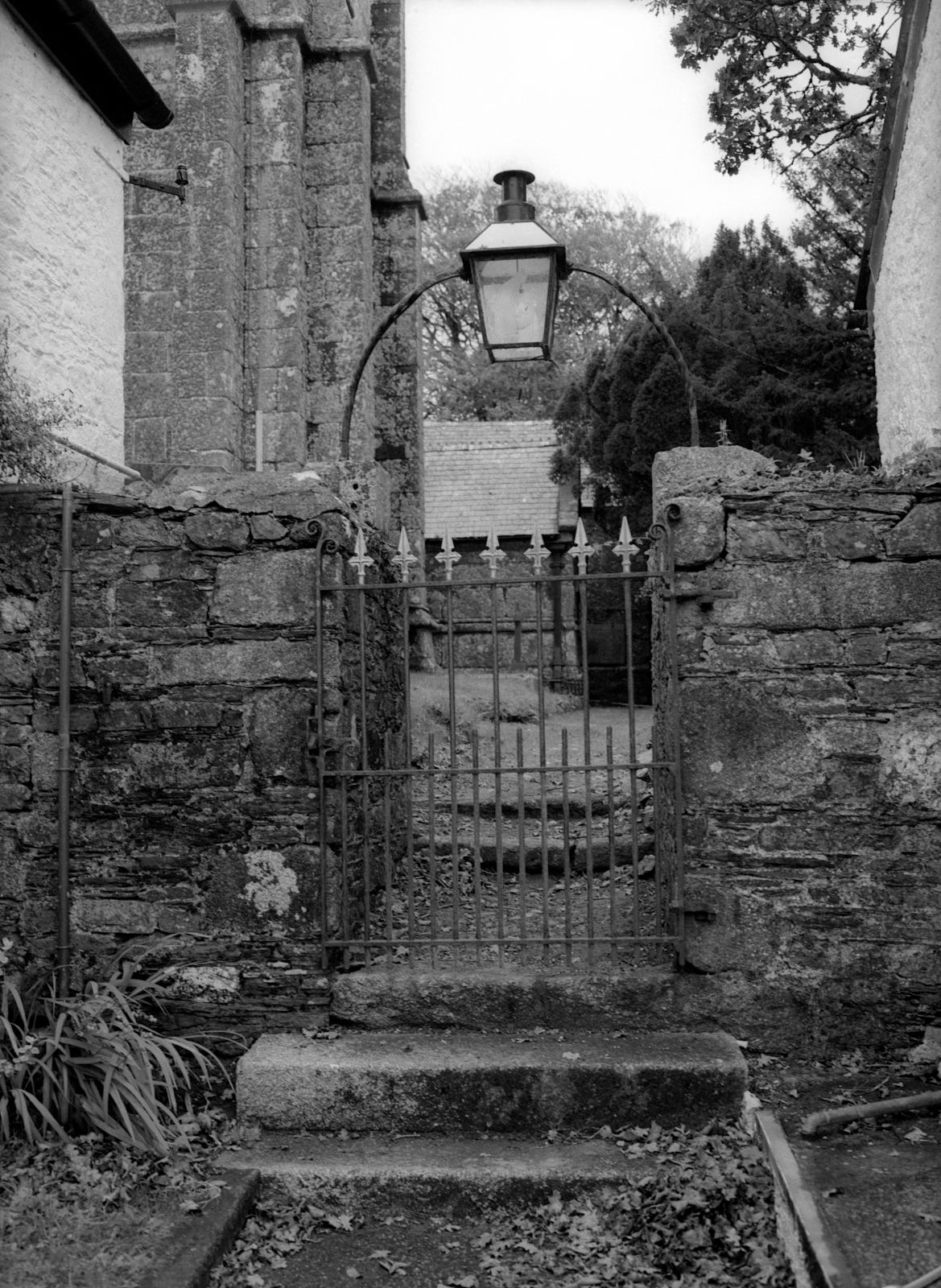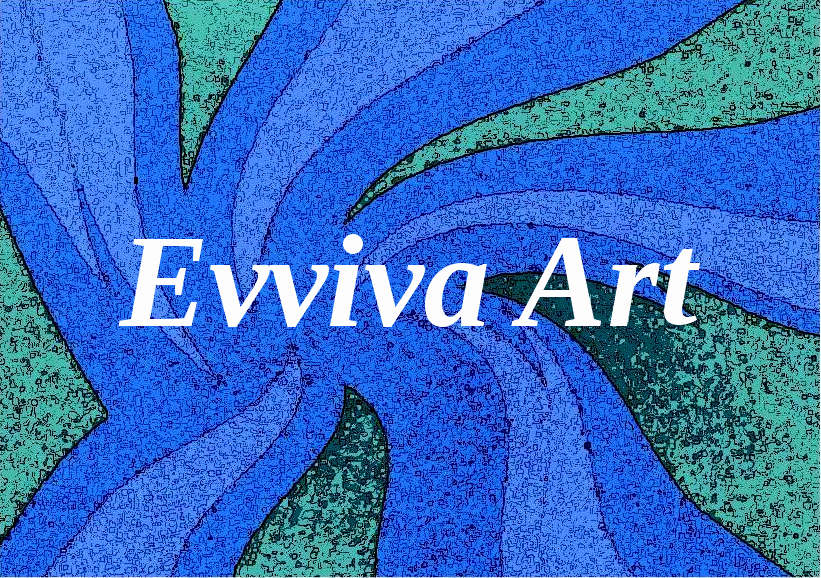
Leslie Wyatt
Film Photography
It doesn't have a film back that can be changed half way through a film but after using the Bronica ETRS system I've never found a need to do that.The film insert, as it is called, is very easy to load with an orientation diagram etched into the inside of the tray so you can avoid putting in the film the wrong way around. Yes, I'll come clean and say I did that with the Bronica film back and with a valuable roll of Fujifilm Provia 400 no less! It has an auto load and wind mechanism which although noisy has a certain cache... everyone knows you are using a film camera and it takes away the hesitation of not having wound on when an brief image presents itself. In fact it will take shots at nearly two frames a second but come on....why would you want to get through a film that quickly. Just hone your skill in knowing when to press the shutter button.
The 645N will take auto focus lenses but frankly, the focussing rings on Pentax
manual lenses are so feather light and quick to focus and I'm convinced that
intelligent focus ( i.e. mine ) is actually better than auto focus. And just in
case the camera thinks I've got it wrong a little green LED lights up in the
viewfinder display when it thinks the subject is in focus! Auto focus lenses
are also a lot more expensive.There are a plethora of lenses that will fit the
645N lens mount with either auto focus or manual focus. I currently have a 55mm
semi-wide angle, a 75mm standard and a 150mm portrait or small telephoto lens
which are all manual focus lenses. I find the standard lens a bit restrictive
and usually fit the 55mm lens which has a lovely field of view.
Unlike the push button 645 with an LCD interface the 645N has actual dials for
compensation and speed settings which seem much more robust. The 645N does have an
LCD screen but displays a minimum amount of information such as film speed and a
frame counter together with a film data imprinting flag and a battery level indicator.
Aperture, shutter speed and compensation are displayed at the bottom of the viewfinder
window.
The camera incorporates three metering modes, centre weighted metering, spot metering
and 6 segment multi-segment metering. It also has single or a 3 point auto focus mode
and a servo focus mode where the camera will focus continuously and will use a predictive
focus for moving objects in the frame. An auto bracketing mode is also available which
will take three consecutive pictures with different exposures depending upon the
compensation set.
As you can see from the available functions this camera will practically do everything
for you apart from pressing the shutter button although it does have a self timer mode!
You can select from programmed AE mode, aperture priority, shutter priority or metered
manual mode and it does have a bulb setting. It doesn't trust you to wind the film on
and so auto wind is a given! Although you can stop that with a button on the side and
take multiple exposure images.
Interestingly it has two tripod fixing points, one on the base as usual but also one on
the side which allows you to take portrait mode images. It has a preview lever which
closes down the aperture to the set value but it is not something I ever do. For me,
the one big advantage over the Bronica system is the manual diopter adjustment which
screws in and out. Brilliant!
